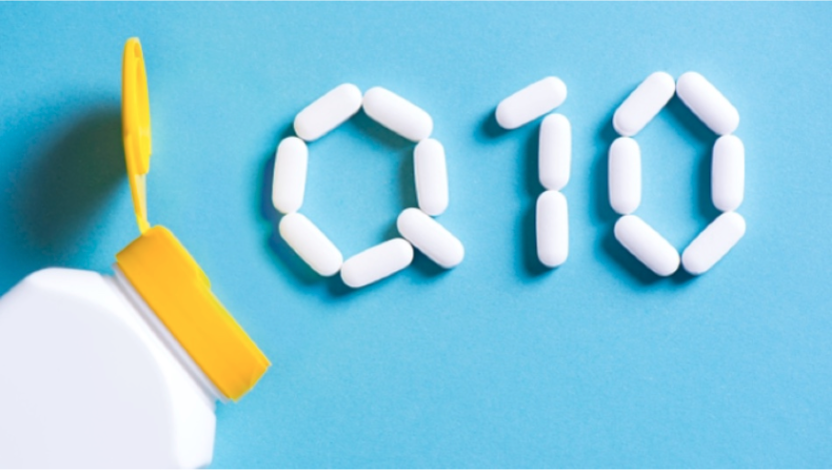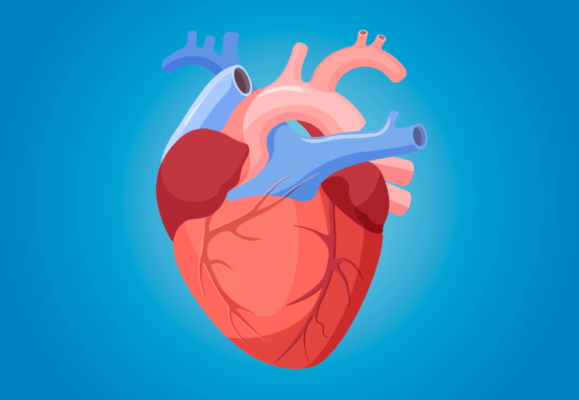
Coenzyme Q10 (CoQ10) is a vital compound found in every cell of the human body.
CoQ10 is essential for the production of energy in the mitochondria and acts as an antioxidant, protecting cells from harmful molecules called free radicals.
In the diet, it is found in fish, pork, chicken, soybeans, nuts, and vegetable oils. Although CoQ10 shares similar functions to vitamins, it is not considered a vitamin because the body synthesizes sufficient amounts under normal physiological conditions.
Levels of CoQ10 decline with age and are low in many age-related chronic diseases.
Potential Health Benefits of Coenzyme Q10
CoQ10 may extend its potential benefits beyond its traditional role in energy production. Emerging research suggests it could provide cardioprotective effects and reduce migraine symptoms. Moreover, its anti-inflammatory and antioxidant properties have shown promise in addressing age-related disorders and various diseases.
CoQ10 Supplementation may be an Effective Anti-Aging Strategy
The production of CoQ10 in different tissues has shown to decrease with age, and numerous age-related conditions are linked to insufficient levels of CoQ10. (1)
This has prompted researchers to explore if CoQ10 supplementation might serve as an effective anti-aging strategy.

While initial animal studies have not demonstrated a direct effect of CoQ10 supplementation on lifespan, research has shown that CoQ10 can protect against age-related changes that contribute to the development of age-related symptoms and diseases.
“There are several processes in which oxidative stress (OS) plays a fundamental part, including as aging, neurodegenerative illnesses, diabetes, and autoimmune disorders, where a decreasing level of CoQ10 is evident, and supplementation with CoQ10 has considerable health advantages.” (2)
Reduced Cellular Senescence
Senescent cells are old, damaged cells that have stopped dividing but have not died. They release harmful chemicals that damage surrounding cells and can lead to diseases often associated with aging.
Life-long CoQ10 supplementation reduced senescence at various stages in a mouse model of accelerated aging (3)
Enhanced Mitochondrial Function and Increased SIRT Levels
SIRTs, or sirtuins, are key proteins that control aging, metabolism, and health. They’re nicknamed “longevity genes” for possibly extending lifespan and healthspan (the period of life spent in good health).
CoQ10 prevented age-related declines in sirtuins, increased mitochondrial activity for energy production, and reduced oxidative stress in a mouse model of accelerated aging. (4)
Protection Against Plaque Build Up in the Arteries
Atherogenesis is the development of plaque in arteries, contributing to their narrowing and potential blockage, which can lead to heart disease and related complications.
CoQ10 prevented the buildup of oxidized fats in the aorta of mice with high cholesterol. (5)
Prevention of Aged-Related Changes to Important Proteins in the Blood
Aging is associated with lower levels and activity of proteins important for protecting cells against damage caused by excessive free radicals and inflammatory compounds.
- CoQ10 has shown to slow age-related changes in antioxidant enzymatic activity (6).
Additionally, low albumin levels tend to decrease in age and is considered a predictor of mortality in elderly people.
- Administration of CoQ10 in rats prevented the age-related drop in plasma albumin, resulting in 24-month-old mice having levels equivalent to those found in 6-month-old rats (7)
Reduced Inflammation in Aging
Chronic low-grade inflammation occurs with aging, and is a major driver of age-related diseases such as cancer, heart disease, and neurodegenerative disease.
Addition of CoQ10 to a Mediterranean diet in older adults (> 65 years) showed greater reduction in post-meal inflammation than with a standard Mediterranean diet or a Western diet. (8)
“All these results suggest that although CoQ supplementation does not directly extend lifespan, it may help to prevent life span shortening due to oxidative insults as it has been suggested by its effect in all aspect related to mitochondrial function, oxidative stress and antioxidant defenses both in animals and humans.” (9)
CoQ10 has Anti-inflammatory and Antioxidant Activity
Inflammation and oxidative stress are significant factors that contribute to the development of many chronic diseases.
Clinical trials have demonstrated that CoQ10 supplementation can effectively diminish systemic inflammation in numerous conditions, including nonalcoholic fatty liver disease, polycystic ovary syndrome, kidney disease, and cardiovascular disease.
CoQ10 supplementation increased levels of antioxidants and decreased malondialdehyde (a maker of oxidative stress) in a meta-analysis of 19 studies.
“The findings of this study showed that CoQ10 supplementation increased total antioxidant capacity and antioxidant enzymes (including SOD, CAT, and GPx) significantly.” (10)
CoQ10’s ability to address both inflammation and oxidative stress was further highlighted in a recent umbrella meta-analysis. This study reviewed 13 meta-analyses published from 2017 to 2022, demonstrating that CoQ10 consistently lowered malondialdehyde levels and the cytokines TNF-α and IL-6.
“Hence, it appears that the effect of CoQ10 supplementation on inflammatory and oxidative stress can be found in both acute and chronic interventions at low doses and high doses.” (11)
CoQ10 May Improve Heart Health

Enhanced Outcomes in Heart Failure Recovery
A meta-analysis reviewing 14 clinical trials found that individuals with heart failure who supplemented with CoQ10 had a reduced mortality rate and significantly enhanced exercise ability.
“In patients with heart failure, the administration of coenzyme Q10 resulted in lower mortality and improved exercise capacity compared with the effects of placebo treatment.” (12)
Improved Blood Vessel Health
Impaired blood vessel function is a significant mechanism underlying the development of cardiovascular disease and is considered a significant predictor of cardiovascular risk.
In a clinical trial involving adults with coronary artery disease, CoQ10 supplementation significantly enhanced blood vessel function and antioxidant activity.
“The results of the present investigation indicate that the oral CoQ10 supplementation in CAD patients has beneficial effects, which can be ascribed either to the bioenergetic role of the quinone or to its antioxidant properties.” (13)
These effects were corroborated in a meta-analysis of five randomized controlled trials that concluded CoQ10 (150-300 mg/day for 4 to 12 weeks) lead to a significant improvement blood vessel function.
Reduced Fat and Cholesterol Levels in the Blood
Maintenance of fat and cholesterol levels in the blood is crucial for cardiovascular health.
A 24-week clinical trial focusing on individuals with high cholesterol showed that CoQ10 supplementation reduced blood triglyceride (fat) and LDL levels while increasing HDL levels.
“The versatility and safety of CoQ10 makes it a potential candidate for the primary prevention of CVD.” (14)
Similarly, in subjects with high cholesterol and a history of a heart attack, CoQ10 improved the total cholesterol/HDL-cholesterol ratio over a 12-week clinical trial.
CoQ10 may Help with Fertility

CoQ10 supplementation shows promise in addressing male and female infertility by reducing oxidative stress, a known factor in fertility problems.
Improved sperm parameters
A study showed 3-month CoQ10 supplementation in infertile men significantly improved multiple semen parameters and reduced markers of oxidative stress.
“CoQ10 can attenuate reactive oxygen species (ROS) effects and enhance sperm functions owing to its antioxidant activity.” (15)
Additional clinical trials have shown the efficacy of CoQ10 for improving sperm motility and sperm count.
Enhanced Outcomes in Assisted Reproductive Technologies
Assisted reproductive technologies (ART) are fertility treatments, such as in vitro fertilization (IVF) and intracytoplasmic sperm injection (ICSI), that help people who are having difficulty getting pregnant.
A meta-analysis revealed that CoQ10 supplementation among women with infertility undergoing assisted reproductive technologies leads to higher clinical pregnancy rates.
A clinical trial in women with poor ovarian reserve (fewer eggs than usual) found that pre-IVF CoQ10 supplementation increased the number of retrieved eggs, boosted fertilization rates, and yielded more high-quality embryos.
“Pretreatment with CoQ10 improves ovarian response to stimulation and embryological parameters in young women with poor ovarian reserve in IVF-ICSI cycles.” (16)
Bioavailability
Bioavailability refers to the proportion of the supplement that is absorbed into the bloodstream after intake and is available to the body.
The bioavailability of CoQ10 is both limited and inconsistent, meaning that only a small amount of the supplement is absorbed into the bloodstream. As a result, it is important to explore delivery systems and formulations that can enhance the bioavailability of CoQ10. (17)
